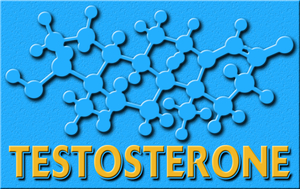Summer is upon us and, undoubtedly, we are all more conscious of our bodies.
Whether it be parading Kadooment Day or visiting the islands beaches more regularly to survive the unrelenting heat, one way or another, the months of June through August are synonymous with less clothes and more flesh. Consequently, we flock in droves to gyms islandwide, go for early morning walks or jogs, exhaust the P90X workout DVD and neglect to do two critical things on our quest to carve summer-appropriate physiques: eat and eat properly!
So just how should we approach food consumption in our endeavour to be summer ready? Do we drastically reduce our food intake and hope to drop 15 pounds of fat in two weeks? Do we eliminate carbohydrates from our diet? Do we eliminate fat?
Do we eliminate meat? Maybe we need to leave out all fried foods? Cut out flour? And, of course, there are always crazy fad diets floating around to further complicate things, for example gluten free, HCG (human chorionic gonadotropin) or limewater.
It can all be rather intimidating but the decisions we make with respect to our nutrition can make or break our success.
When revamping our diets there are some salient principles that should be considered to ensure we remain on the path to a healthy transformation. Let us consider the following guidelines to success:
Have small frequent meals Most of us have heard this one before and there is a reason why it is such a common tenet of proper nutrition. Eating frequently has been proven to stabilise blood sugar levels, elevate metabolism (great for fat loss) and reduce catabolism (great for muscle preservation or gain).
Have a source of protein in every meal: Protein is perhaps the most important macronutrient we can consume. It is responsible for growth and repair in our bodies and it aids in a positive nitrogen balance (important for muscle growth and development of lean body mass). Complete proteins (proteins containing the full gamut of essential amino acids) are a required part of any diet because they cannot be manufactured by the human body in adequate amounts. Complete proteins are typically obtained from animal sources (poultry, dairy, fish, meat,
and so on), whereas incomplete proteins (proteins deficient in one or more essential amino acids) are obtained from plant sources. It is possible, however, to combine two or more incomplete proteins to make a complete protein (for example rice and beans). Animal sources remain superior nonetheless because they are more protein dense and have a higher biological value.
Eat the right carbohydrates at the right times Carbohydrates are required for energy and should not be eliminated from our diets. Instead they should be obtained from the right sources and consumed in sensible amounts based on activity levels. If, for example, one is going to have a sedentary period (sitting at a cubicle for two to three hours), the meal that precedes this activity need not be high in carbohydrates because it follows that a lot of energy is not required to perform this function. Lower glycemic carbohydrates are our most useful
Follow this link:
Eat your way to a hot body
Contact Us Today For A Free Consultation

- Weight Loss Cure - Metabolic Cookbook - Video [Last Updated On: January 25th, 2024] [Originally Added On: July 12th, 2013]
- Qualigen Receives FDA Clearance for Its FastPack® Vitamin D Immunoassay [Last Updated On: January 25th, 2024] [Originally Added On: July 16th, 2013]
- How Julia Montes lost weight [Last Updated On: January 25th, 2024] [Originally Added On: October 4th, 2013]
- Home - Dr. Jenyons Medical Weight Loss and Rejuvenation Center [Last Updated On: January 25th, 2024] [Originally Added On: December 8th, 2013]
- Dieters Beware: Weight Loss Products May Use Deceptive Marketing [Last Updated On: January 25th, 2024] [Originally Added On: January 8th, 2014]
- FTC Announces $34 Million in Settlements with Companies Over Bogus Weight-Loss Products [Last Updated On: January 25th, 2024] [Originally Added On: January 9th, 2014]
- The Point of P3 : #3 Food Sensitivities Discovered to Help Weight Maintenance - Video [Last Updated On: January 25th, 2024] [Originally Added On: May 19th, 2014]
- The Weight Loss Black List; Twelve Dangerous Weight Loss Ingredients [Last Updated On: January 25th, 2024] [Originally Added On: May 31st, 2014]
- Getting a degree in dieting [Last Updated On: January 25th, 2024] [Originally Added On: June 10th, 2014]
- 7 Fad Diets You Shouldn't Try [Last Updated On: January 25th, 2024] [Originally Added On: July 19th, 2014]
- Try the cookie diet? [Last Updated On: January 25th, 2024] [Originally Added On: July 25th, 2014]
- 14 Fad Diets You Shouldnt Try [Last Updated On: January 25th, 2024] [Originally Added On: July 26th, 2014]
- B12 Injection Therapy as Part of Hormone Replacement Therapy - Video [Last Updated On: January 25th, 2024] [Originally Added On: August 12th, 2014]
- FTC continues cracking down on weight loss scams [Last Updated On: January 25th, 2024] [Originally Added On: December 13th, 2014]
- Micronutrients: The Gateway to Cellular Health Function 101 [Last Updated On: March 1st, 2024] [Originally Added On: June 24th, 2020]
- Could a Revolutionary Weight Loss Strategy Be on the Horizon? [Last Updated On: February 24th, 2024] [Originally Added On: August 19th, 2020]
- Controlling Testosterone Levels Through Diet [Last Updated On: February 12th, 2024] [Originally Added On: October 12th, 2020]
- Selecting the Ideal Intermittent Fasting Protocol [Last Updated On: January 25th, 2024] [Originally Added On: October 20th, 2020]
- Limiting the Influence of Estrogen on Male Hormone Balance Through Diet [Last Updated On: January 25th, 2024] [Originally Added On: December 31st, 2020]
- Vitamin D and Sunlight for Mood and Hormone Balance [Last Updated On: January 25th, 2024] [Originally Added On: February 22nd, 2021]
- Testosterone-Boosting Foods: Nutrition for a Man [Last Updated On: September 18th, 2024] [Originally Added On: March 24th, 2021]
- Boost Your Testosterone With a Low-Calorie, Ketogenic-Focused Diet [Last Updated On: August 30th, 2024] [Originally Added On: June 1st, 2021]
- The Standard American Diet is Linked to Poor Testicular Function [Last Updated On: August 23rd, 2024] [Originally Added On: June 8th, 2021]
- Drinking Water Alone Isn’t Enough [Last Updated On: August 26th, 2024] [Originally Added On: March 22nd, 2022]
- A High-Protein Diet – Good for Testosterone Levels or Not? [Last Updated On: September 3rd, 2024] [Originally Added On: March 29th, 2022]
- Inflammatory Foods Linked to Low Testosterone [Last Updated On: September 5th, 2024] [Originally Added On: July 18th, 2022]
- Vitamins and Nutrients that Keep Hair Healthy and Vibrant [Last Updated On: August 11th, 2024] [Originally Added On: November 23rd, 2022]
- Are You a “Soy Boy”? [Last Updated On: December 3rd, 2023] [Originally Added On: February 10th, 2023]
- Finding the Origin of Prostate Cancer to Stop Cancer Before it Starts [Last Updated On: October 25th, 2024] [Originally Added On: February 13th, 2023]
- How to burn calories while walking. [Last Updated On: February 20th, 2024] [Originally Added On: June 27th, 2023]
Word Count: 528




















